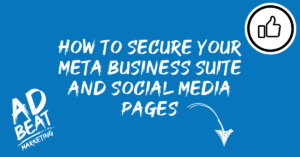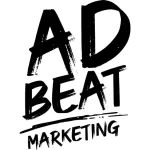Before you consider adding PPC to your digital marketing mix, read this article…
What is PPC?
Before diving in, let’s clarify what we mean by PPC (Pay-Per-Click). PPC is a form of digital advertising where you pay every time someone clicks on your advertisement. This can include various types of digital ads, such as display ads, paid social media ads, and most commonly, paid search ads.
In this article, we’ll focus on PPC in the context of Paid Search, a digital marketing tactic where businesses pay to appear at or near the top of search engine results like Google. By bidding on relevant keywords, your business can ensure that your ad appears when users search for terms related to your products or services. The beauty of PPC is that you only pay when someone clicks on your ad, making it a cost-effective way to drive targeted traffic and boost sales quickly.
Now that we’re all on the same page, let’s explore the benefits of using PPC in your digital marketing strategy.
Benefits of PPC for Your Business
- Targeted Advertising: PPC allows you to reach potential customers who are actively searching for products or services like yours. This means your digital marketing budget is spent efficiently, focusing on users who are more likely to convert. While brand advertising is crucial for building awareness, PPC ensures your ads reach people who are already in-market for what you offer.
- Fast Insights: PPC campaigns can drive traffic to your website almost immediately after launch, providing quick insights into what messaging and targeting work best. This data is invaluable for refining your broader digital marketing strategies, improving overall marketing performance, and making informed sales decisions.
- Local Targeting: For small businesses serving specific regions, PPC’s geo-targeting features are invaluable. You can ensure your ads reach potential customers in your local area, increasing the likelihood of attracting nearby customers ready to make a purchase.
- Measurable ROAS (Return on Ad Spend): PPC provides detailed analytics, allowing you to track the impact of your ads on purchases and leads. This makes it easier to understand how your digital marketing efforts translate into sales and profits, ensuring your marketing budget is used effectively.
- Enhanced Brand Visibility: Even if users don’t click on your ad, appearing at the top of search results increases your brand’s visibility and recognition. This is particularly important for new businesses or those still developing their SEO strategy.
- Support for Other Marketing Channels: PPC can complement your other marketing efforts, such as social media or content marketing, by driving traffic to your website and increasing conversions. The data gathered from PPC can also help refine your overall digital marketing strategies.
Is PPC Right for Your Business?
PPC can be a powerful tool for almost any business, but it’s essential to assess whether your business is ready to leverage PPC effectively.
Before we continue, it’s important to state that PPC is a complex and time consuming platform which requires a good depth of knowledge of keyword bidding and digital marketing strategy/optimisation to reap the rewards.
Assuming you haven’t used this platform before (hence reading this article) I would strongly advise hiring a digital marketing consultant or a PPC specialist to ensure your budget and your digital marketing strategy is working as effectively as possible.
With that said, here are some scenarios where PPC might be particularly beneficial:
- New Business with a New Website: If your website is new, it will take time to rank organically in search results. While working on your SEO, PPC can help bridge the gap, giving your business immediate visibility against relevant searches. Over time, as your SEO improves, you can adjust your PPC strategy accordingly.
- E-commerce Sites Focused on Product Sales: PPC is ideal for driving conversions, especially for e-commerce sites. Google Shopping ads, for instance, allow you to display product images directly in search results, providing multiple ways to target customers. The insights gained from PPC can help you maximize your digital marketing budget by focusing on what drives sales.
- Seasonal or Stock-Dependent Businesses: If your business is seasonal or you manage stock levels closely, PPC offers the flexibility to control when and where your ads appear. You can adjust your ads based on the time of year, target specific devices, and focus on the most relevant keywords, ensuring your digital marketing efforts align with your business capabilities.
- Niche Audience or Business: For businesses with a niche audience, PPC is highly effective. Since niche keywords are less competitive, you can achieve better results with a smaller budget. Google’s bidding system rewards relevance, so if your ads closely match what users are searching for, you’re likely to pay less and achieve higher ad placement.
- Lack of Bottom-Funnel Marketing Channels: If your marketing efforts are primarily focused on brand awareness and consideration phases but lack channels to convert these leads into customers, PPC can fill that gap. By targeting users who are ready to make a purchase, PPC ensures your digital marketing strategy covers the entire customer journey, from awareness to conversion.
Conclusion: Should You Add PPC to Your Digital Marketing Strategy?
If you’re considering PPC as part of your digital marketing strategy, it’s crucial to assess your business’s readiness and goals. PPC offers numerous benefits, from targeted advertising to measurable returns, making it a valuable addition to your marketing mix.
If you’re ready to explore how PPC can drive growth for your business, consider hiring a digital marketing consultant. With the right expertise, you can maximize your PPC investment and achieve significant business results.
Get in touch with us today, and let’s discuss the best PPC strategy for your business!




